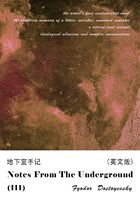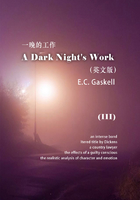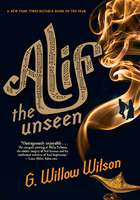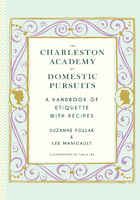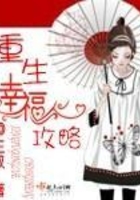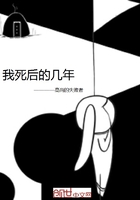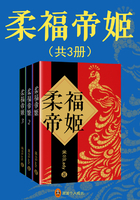Mondays, Wednesdays, and Fridays were the days Noni tutored Sai.
The cook dropped her off and collected her at Mon Ami, continuing to the market and the post office in the meantime, and selling his chhang.
He had first started a liquor business on the side for Biju's sake, because his salary had hardly been changed in years. His last raise had been twenty-five rupees.
"But sahib," he had begged, "how can I live on this?"
"All your expenses are paid for—housing, clothing, food, medicines. This is extra," growled the judge.
"What about Biju?"
"What about Biju? Biju must make his own way. What's wrong with him?"
The cook, known for the fine quality of his product, would buy millet, wash and cook it like rice, then, adding yeast, would leave it to ferment overnight in hot weather, longer in winter. A day or two in a gunny sack, and when it had that sour dry buzzing flavor, he would sell it at a shack restaurant called Gompu's. It filled him with pride to see men sitting in the steam and smoke with their bamboo mugs full of his grain topped with hot water. They sucked up the liquid, filtering out the millet with a bamboo stem for a straw—aaaaah.… The cook urged his customers to keep some chhang near their beds in case they felt thirsty at night, claiming it gave strength after illness. This venture led to another, even more lucrative one as the cook made contacts in the brand-name black market and became a crucial, if small, link in the underground business of subsidized army liquor and fuel rations. His shack was an easy jungle-camouflaged detour for military trucks on their way to the officers' mess. He stood in the bushes, waiting. The vehicles paused and quickly the crates were unloaded—Teacher's, Old Monk, Gilby's, Gymkhana; he carried them to his shack and later to certain merchants in town who sold the bottles. They all received a cut of the money, the cook a smidgen in the scheme of things, fifty rupees, a hundred rupees; the lorry drivers a bigger amount; the men at the mess even more; the biggest cut of all went to Major Aloo, friend of Lola and Noni, who procured for them, by similar means, their favorite Black Cat rum and cherry brandy from Sikkim.
This the cook had done for Biju, but also for himself, since the cook's desire was for modernity: toaster ovens, electric shavers, watches, cameras, cartoon colors. He dreamed at night not in the Freudian symbols that still enmeshed others but in modern codes, the digits of a telephone flying away before he could dial them, a garbled television.
He had found that there was nothing so awful as being in the service of a family you couldn't be proud of, that let you down, showed you up, and made you into a fool. How the other cooks and maids, watchmen and gardeners on the hillside laughed, boasting meanwhile how well they were treated by their employers—money, comfort, even pensions in special bank accounts. In fact, so beloved were some of these servants that they were actually begged not to work; their employers pleaded with them to eat cream and ghee, to look after their chilblains and sun themselves like monitor lizards on winter afternoons. The MetalBox watchman assured him that each morning he consumed a fried egg—with white toast, when white bread had been fashionable, and now that brown bread was most in vogue, with brown.
So serious was this rivalry that the cook found himself telling lies. Mostly about the past since the present could too easily be picked apart. He fanned a rumor of the judge's lost glory, and therefore of his own, so it flamed and prospered up and down the market. A great statesman, he told them, a wealthy landowner who gave his family property away, a freedom fighter who left a position of immense power in court as he did not wish to pass judgment on his fellow men—he could not, not with his brand of patriotic zest, jail congresswallahs, or stamp out demonstrations. A man so inspiring, but brought to his knees, to austerity and philosophy, by sorrow at his wife's death, the wife herself a martyred and religious mother of the kind that makes a Hindu weak in the knees. "That is why he sits by himself all day and every day."
The cook had never known the judge's wife, but he claimed that his information had been handed down from the older servants in the household, and eventually, he had grown to believe his own marvelous story. It gave him a feeling of self-respect even as he picked over the vegetables being sold cheap and considered rebate melons with caving pates.
"He was completely different," he told Sai, too, when she first came to Kalimpong. "You cannot believe. He was born a rich man."
"Where was he born?"
"Into one of the top families of Gujarat. Ahmedabad. Or was it Baroda? Huge haveli like a palace."
Sai liked to keep him company in the kitchen as he told her stories. He gave her bits of dough to roll into chapatis and showed her how to make them perfectly round, but hers came out in all kinds of shapes. "Map of India," he would say, dismissing one. "Oofho, now you've made the map of Pakistan," he tossed out the next. Finally he'd let her put one of them on the fire to puff up and if it didn't, "Well, Dog Special Roti," he would say.
"But tell me more," she would ask, as he allowed her to spread jam on a tart or grate cheese into a sauce.
"They sent him to England and ten thousand people saw him off at the station. He went on top of an elephant! He had won, you see, a scholarship from the maharaja… ."
The sound of the cook talking reached the judge's ears as he sat over chess in the drawing room. When he thought of his past, he began, mysteriously, to itch. Every bit of him filled with a burning sensation. It roiled within until he could barely stand it.
Jemubhai Popatlal Patel had, in fact, been born to a family of the peasant caste, in a tentative structure under a palm roof scuffling with rats, at the outskirts of Piphit where the town took on the aspect of a village again. The year was 1919 and the Patels could still remember the time when Piphit had seemed ageless. First it had been owned by the Gaekwad kings of Baroda and then the British, but though the revenue headed for one owner and then another, the landscape had remained unaffected; a temple stood at its heart, and by its side, a several-legged banyan tree; in its pillared shade, white-bearded men regurgitated their memories; cows mooed oo aaw, oo aaw; women walked through the cotton fields to collect water at the mud-muddled river, a slow river, practically asleep.
But then tracks had been laid across the salt pans to bring steam trains from the docks at Surat and Bombay to transport cotton from the interior. Broad homes had come up in the civil lines, a courthouse with a clock tower to maintain the new, quick-moving time, and on the streets thronged all manner of people: Hindu, Christian, Jain, Muslim, clerks, army boys, tribal women. In the market, shopkeepers from the cubby-hole shops in which they perched conducted business that arced between Kobe and Panama, Port-au-Prince, Shanghai, Manila, and also to tin-roofed stalls too small to enter, many days' journey away by bullock cart. Here, in the market, upon a narrow parapet that jutted from a sweet-seller's establishment, Jemubhai's father owned a modest business procuring false witnesses to appear in court. (Who would think his son, so many years later, would become a judge?)
The usual stories: jealous husband cutting off wife's nose or falsified record claiming death of a widow who was still alive so her property might be divided among greedy descendants.
He trained the poor, the desperate, the scoundrels, rehearsed them strictly:
"What do you know about Manubhai's buffalo?"
"Manubhai, in fact, never had a buffalo at all."
He was proud of his ability to influence and corrupt the path of justice, exchange right for wrong or wrong for right; he felt no guilt. By the time a case of a stolen cow arrived at court, centuries of arguments had occurred between warring families, so many convolutions and tit-for-tats that there was no right or wrong anymore. Purity of answer was a false quest. How far back could you go, straightening things out?
The business succeeded. He bought a second-hand Hercules cycle for thirty-five rupees and became a familiar sight riding about town. When his first and only son was born his hopes were immediately buoyed. Baby Jemubhai wrapped five miniature fingers about a single one of his father's; his clutch was determined and slightly grim, but his father took the grip as proof of good health and could not shut his mustache over his smile. When his son was big enough, he sent him to the mission school.
Each weekday morning, Jemubhai's mother shook him awake in darkness so he might review his lessons.
"No, please no, little more time, little more." He wriggled from her grasp, eyes still closed, ready to drop back into sleep, for he had never grown used to this underground awakening, this time that belonged to dacoits and jackals, to strange sounds and shapes that weren't meant, he was sure, to be heard or seen by him, a mere junior student at the Bishop Cotton School. There was nothing but black against his eyes, though he knew it was really a cluttered scene, rows of opinionated relatives asleep outside, kakas-kakis-masas-masis-phois-phuas, bundles in various colors dangling from the thatched roof of the veranda, buffaloes tethered to the trees by rings in their noses.
His mother was a phantom in the dark courtyard, pouring cold well water over his invisible self, scrubbing viciously with the thick wrists of a farm woman, rubbing oil through his hair, and though he knew it would encourage his brains, it felt as if she were rubbing, rubbing them out.
Fed he was, to surfeit. Each day, he was given a tumbler of fresh milk sequined with golden fat. His mother held the tumbler to his lips, lowering it only when empty, so he reemerged like a whale from the sea, heaving for breath. Stomach full of cream, mind full of study, camphor hung in a tiny bag about his neck to divert illness; the entire package was prayed over and thumb-printed red and yellow with tika marks. He was taken to school on the back of his father's bicycle.
In the entrance to the school building was a portrait of Queen Victoria in a dress like a flouncy curtain, a fringed cape, and a peculiar hat with feathery arrows shooting out. Each morning as Jemubhai passed under, he found her froggy expression compelling and felt deeply impressed that a woman so plain could also have been so powerful. The more he pondered this oddity, the more his respect for her and the English grew.
It was there, under her warty presence, that he had finally risen to the promise of his gender. From their creaky Patel lineage appeared an intelligence that seemed modern in its alacrity. He could read a page, close the book, rat-a-tat it back, hold a dozen numbers in his head, work his mind like an unsnagging machine through a maze of calculations, roll forth the answer like a finished product shooting from a factory chute. Sometimes, when his father saw him, he forgot to recognize his son, so clearly in the X-ray flashes of his imagination did he see the fertile cauliflowering within his son's skull.
The daughters were promptly deprived to make sure he got the best of everything, from love to food. Years went by in a blur.
But Jemubhai's hopes remained fuzzy and it was his father who first mentioned the civil service.
When Jemubhai, aged fourteen, matriculated at the top of the class, the principal, Mr. McCooe, summoned his father and suggested his son take the local pleader's examination that would enable him to find employment in the courts of subordinate magistrates. "Bright boy … he might end up in the high court!"
The father walked out thinking, Well, if he could do that, he could do more. He could be the judge himself, couldn't he?
His son might, might, could! occupy the seat faced by the father, proud disrupter of the system, lowest in the hierarchy of the court. He might be a district commissioner or a high court judge. He might wear a silly white wig atop a dark face in the burning heat of summer and bring down his hammer on those phony rigged cases. Father below, son above, they'd be in charge of justice, complete.
He shared his dream with Jemubhai. So fantastic was their dreaming, it thrilled them like a fairy tale, and perhaps because this dream sailed too high in the sky to be tackled by logic, it took form, began to exert palpable pressure. Without na?veté, father and son would have been defeated; had they aimed lower, according to the logic of probability, they would have failed.
The recommended number of Indians in the ICS was 50 percent and the quota wasn't even close to being filled. Space at the top, space at the top. There certainly was no space at the bottom.
Jemubhai attended Bishop's College on a scholarship, and after, he left for Cambridge on the SS Strathnaver. When he returned, member of the ICS, he was put to work in a district far from his home in the state of Uttar Pradesh.
"So many servants then," the cook told Sai. "Now, of course, I am the only one." He had begun working at ten years old, at a salary half his age, five rupees, as the lowest all-purpose chokra boy in the kitchen of a club where his father was pudding cook.
At fourteen, he was hired by the judge at twelve rupees a month. Those were days when it was still pertinent to know that if you tied a pot of cream to the underside of a cow, as you walked to the next camp it would churn itself into butter by day's end. That a portable meat safe could be made with an upside-down open umbrella tied about with mosquito netting.
"We were always on tour," said the cook, "three weeks out of four. Only in the worst days of the monsoon did we stop. Your grandfather would drive in his car if he could, but the district was mostly without roads, and hardly any bridges spanned the rivers, so more often he had to ride out on horseback. Now and then, through jungly areas and through deeper, swifter currents, he crossed on elephant. We would travel before him in a train of bullock carts piled with the china, tents, furniture, carpets—everything. There were porters, orderlies, a stenographer. There was a thunder box for the bathroom tent and even a murga-murgi in a cage under the cart. They were a foreign breed and that hen laid more eggs than any other murgi I have known."
"Where did you sleep?" Sai asked.
"We would put up tents in villages all over the district: a big bedroom tent like a top for your grandfather, with an attached tent bathroom, dressing room, drawing room, and dining room. The tents were very grand, Kashmiri carpets, silver dishes, and your grandfather dressed for dinner even in the jungle, in black dinner jacket and bow tie.
"As I said, we went first, so that when your grandfather arrived, everything was set up exactly as it had been left in the old camp, the same files open at the same angle turned to the same page. If it was even a little bit different, he would lose his temper.
"The timetable was strictly enforced—we couldn't be late by even five minutes, so we all had to learn how to read a clock.
"At five-forty-five I would take the bed tea on a tray to your grandfather's tent. 'Bed tea,' I would call out as I lifted the tent flap.
"Bad tea," was how it sounded. "Baaad teee. Baaad teeee." Sai began to laugh.
The judge stared at his chessboard, but after the burning memory of his beginnings, he experienced the sweet relief now of recalling his life as a touring official in the civil service.
The tight calendar had calmed him, as did the constant exertion of authority. How he relished his power over the classes that had kept his family pinned under their heels for centuries—like the stenographer, for example, who was a Brahmin. There he was, crawling into a tiny tent to the side, and there was Jemubhai reclining like a king in a bed carved out of teak, hung with mosquito netting.
"Bed tea," the cook would shout. "Baaad tee."
He would sit up to drink.
6:30: he'd bathe in water that had been heated over the fire so it was redolent with the smell of wood smoke and flecked with ash. With a dusting of powder he graced his newly washed face, with a daub of pomade, his hair. Crunched up toast like charcoal from having been toasted upon the flame, with marmalade over the burn.
8:30: he rode into the fields with the local officials and everyone else in the village going along for fun. Followed by an orderly holding an umbrella over his head to shield him from the glare, he measured the fields and checked to make sure his yield estimate matched the headman's statement. Farms were growing less than ten maunds an acre of rice or wheat, and at two rupees a maund, every single man in a village, sometimes, was in debt to the bania. (Nobody knew that Jemubhai himself was noosed, of course, that long ago in the little town of Piphit in Gujarat, moneylenders had sniffed out in him a winning combination of ambition and poverty … that they still sat waiting cross-legged on a soiled mat in the market, snapping their toes, cracking their knuckles in anticipation of repayment… .)
2:00: after lunch, the judge sat at his desk under a tree to try cases, usually in a cross mood, for he disliked the informality, hated the splotch of leaf shadow on him imparting an untidy mongrel look. Also, there was a worse aspect of contamination and corruption: he heard cases in Hindi, but they were recorded in Urdu by the stenographer and translated by the judge into a second record in English, although his own command of Hindi and Urdu was tenuous; the witnesses who couldn't read at all put their thumbprints at the bottom of "Read Over and Acknowledged Correct," as instructed. Nobody could be sure how much of the truth had fallen between languages, between languages and illiteracy; the clarity that justice demanded was nonexistent. Still, despite the leaf shadow and language confusion, he acquired a fearsome reputation for his speech that seemed to belong to no language at all, and for his face like a mask that conveyed something beyond human fallibility. The expression and manner honed here would carry him, eventually, all the way to the high court in Lucknow where, annoyed by lawless pigeons shuttlecocking about those tall, shadowy halls, he would preside, white powdered wig over white powdered face, hammer in hand.
His photograph, thus attired, thus annoyed, was still up on the wall, in a parade of history glorifying the progress of Indian law and order.
4:30: tea had to be perfect: drop scones made in the frying pan. He would embark on them with forehead wrinkled, as if angrily mulling over something important, and then, as it would into his retirement, the draw of the sweet took over, and his stern work face would hatch an expression of tranquility.
5:30: out he went into the countryside with his fishing rod or gun. The countryside was full of game; lariats of migratory birds lassoed the sky in October; quail and partridge with lines of babies strung out behind whirred by like nursery toys that emit sound with movement; pheasant—fat foolish creatures, made to be shot—went scurrying through the bushes. The thunder of gunshot rolled away, the leaves shivered, and he experienced the profound silence that could come only after violence. One thing was always missing, though, the proof of the pudding, the prize of the action, the manliness in manhood, the partridge for the pot, because he returned with—
Nothing!
He was a terrible shot.
8:00: the cook saved his reputation, cooked a chicken, brought it forth, proclaimed it "roast bastard," just as in the Englishman's favorite joke book of natives using incorrect English. But sometimes, eating that roast bustard, the judge felt the joke might also be on him, and he called for another rum, took a big gulp, and kept eating feeling as if he were eating himself, since he, too, was (was he?) part of the fun… .
9:00: sipping Ovaltine, he filled out the registers with the day's gleanings. The Petromax lantern would be lit—what a noise it made—insects fording the black to dive-bomb him with soft flowers (moths), with iridescence (beetles). Lines, columns, and squares. He realized truth was best looked at in tiny aggregates, for many baby truths could yet add up to one big size unsavory lie. Last, in his diary also to be submitted to his superiors, he recorded the random observations of a cultured man, someone who was observant, schooled in literature as well as economics; and he made up hunting triumphs: two partridge … one deer with thirty-inch horns… .
11:00: he had a hot water bottle in winter, and, in all seasons, to the sound of the wind buffeting the trees and the cook's snoring, he fell asleep.
The cook had been disappointed to be working for Jemubhai. A severe comedown, he thought, from his father, who had served white men only.
The ICS was becoming Indianized and they didn't like it, some of these old servants, but what could you do? He'd even had a rival for the position, a man who appeared with tattered recommendations inherited from his father and grandfather to indicate a lineage of honesty and good service.
The cook's father, who had made his way through his career without such praise, had bought recommendations on the servant chittie exchange for his son, some so antiquated they mentioned expertise in the dhobi pie and country captain chicken.
The judge looked them over: "But his name is not Solomon Pappiah. It is not Sampson. It is not Thomas."
"They liked him so much, you see," said the cook's father, "that they gave him a name of their own people. Out of love they called him Thomas."
The judge was disbelieving.
"He needs to be trained," the father admitted finally and dropped his demand for twenty rupees for his son, "but that is why he will come cheap. And in puddings there is nobody to beat him. He can make a new pudding for each day of the year."
"What can he make?"
"Bananafritterpineapplefritterapplefritterapplesurpriseapple charlotteapplebettybreadandbutterjamtartcaramelcustardtipsypudding rumtumpuddingjamrolypolygingersteamdatepuddinglemonpancake eggcustardorangecustardcoffeecustardstrawberrycustardtriflebaked alaskamangosoufflélemonsoufflécoffeesouffléchocolatesoufflé goosberrysoufléhotchocolatepuddingcoldcoffeepuddingcoconut puddingmilkpuddingrumbabarumcakebrandysnappearstewguavastew plumstewapplestewpeachstewapricotstewmangopiechocolatetart appletartgooseberrytartlemontartjamtartmarmaladetartbebinca floatingislandpineappleupsidedownappleupsidedowngooseberry upsidedownplumupsidedownpeachupsidedownraisinupsidedown—"
"All right. All right."

